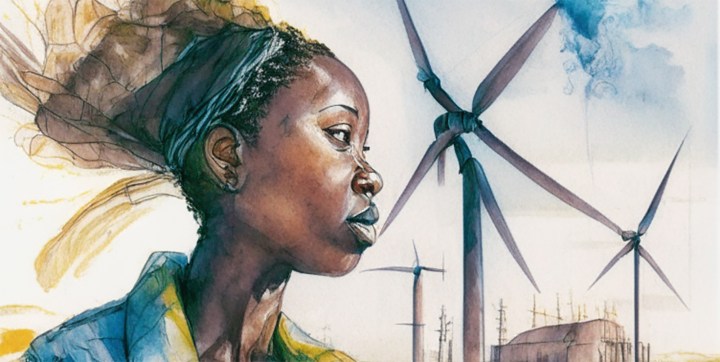KIGALI CONFERENCE
Unjust transition — ‘most of those experiencing energy poverty are women and girls’

The Women Deliver Conference in Kigali, Rwanda, has heard that it’s key for women to be central to the just transition as they are primary caretakers — energy in the home is an essential part of fulfilling that role.
Mainstream narratives around the just energy transition assume universal energy access, but one in three people do not have access to electricity. Most of those experiencing energy poverty are women and girls, said Sheila Oparaocha, director of the International Network on Gender and Sustainable Energy.
“The mainstream narrative of the just energy transition assumes first of all, that you have energy. It assumes that we are transitioning to net zero by 2050. And it also assumes that the deployment of large-scale renewable energy is the fastest way to achieve this goal,” Oparaocha said.
“The reality is that… one in three people on this planet do not have access to energy. When you break those numbers down, most of them show that 80% of those without access to energy are living in Africa. And when you further deconstruct that, you find that those individuals in poor communities [affected by poor energy access] are mostly women.”
Oparaocha was speaking during a panel discussion on “Women, Climate and the Just Transition” at the Women Deliver Conference in Kigali, Rwanda. The conference, which has brought together more than 6,000 delegates who are stakeholders in the feminist movement, is one of the largest platforms for the gathering of multiple sectors to advance the intersectional feminist movement.
On the panel alongside Oparaocha were Jacqueline Patterson, the founder and executive director of the Chisholm Legacy Project; Makoma Lekalakala, the director of Earthlife Africa; and Thuli Makama, the Africa senior adviser of Oil Change International. The discussion was moderated by Ellen Dorsey, the executive director of the Wallace Global Fund.
Read more in Daily Maverick: Women are locked out of the climate adaptation plan — we need to align culture and tradition to fix this
Lekalakala focused on the South African context, the increase in climate-induced natural disasters and the role of the Presidential Climate Commission’s public consultations in the lead-up to the just energy transition. She highlighted that mostly women were present for the consultations.
“The plans and pathways to a just energy transition should be generative rather than destructive, which should include plans to rehabilitate land and areas that have been destroyed. What is also important in the just transition framework is the issue around distributive justice; the possibility of socially owned economic activity in the society; energy democracy, socially owned electricity generation and decentralised energy systems.
“The women in different communities have been preaching for these solutions… in order to reduce greenhouse gas emissions,” said Lekalakala.
She said it was key for women to be central to the transition as women were primary caretakers and energy in the home was an essential part of fulfilling that role.
Women also tend to be smallholder farmers, who produce 80% of the food in developing countries and need decentralised sources of energy such as community-based mini-grids to use for agricultural equipment and processing farm foods.
Fossil fuel companies tend to push back against the just transition by claiming that the industry is a job creator and further develops the countries where they extract, said Makama, adding that this was a false claim.
A report, The Sky’s Limit Africa, by Makama’s organisation, Oil Change International, found that women face a disproportionate unemployment rate in fossil fuel-producing countries.
Furthermore, the lack of energy access has a disproportionate effect on women and girls who are tasked with collecting firewood; alongside the health effects of collecting and burning fuelwood.
The report adds, however, that in pursuing the just energy transition, the gender inequalities experienced by women as a result of energy poverty, should be addressed so as to not exacerbate the existing disparities.
“The key challenge that we have is the lack of political and financial will… we do know that a lot of money is coming to the [NGO] sector but… there is no clear vision on how to invest in [gender-smart] issues,” Oparaocha said.
“Only 6% of climate finance goes to energy access, and more worrying is that 9% of all energy sector development finance is directed towards gender equality. As we are sitting here, there is really a funding crisis — it’s not just an energy or climate crisis, it’s really a funding crisis.” DM
To read all about Daily Maverick’s recent The Gathering: Earth Edition, click here.



















Comments - Please login in order to comment.